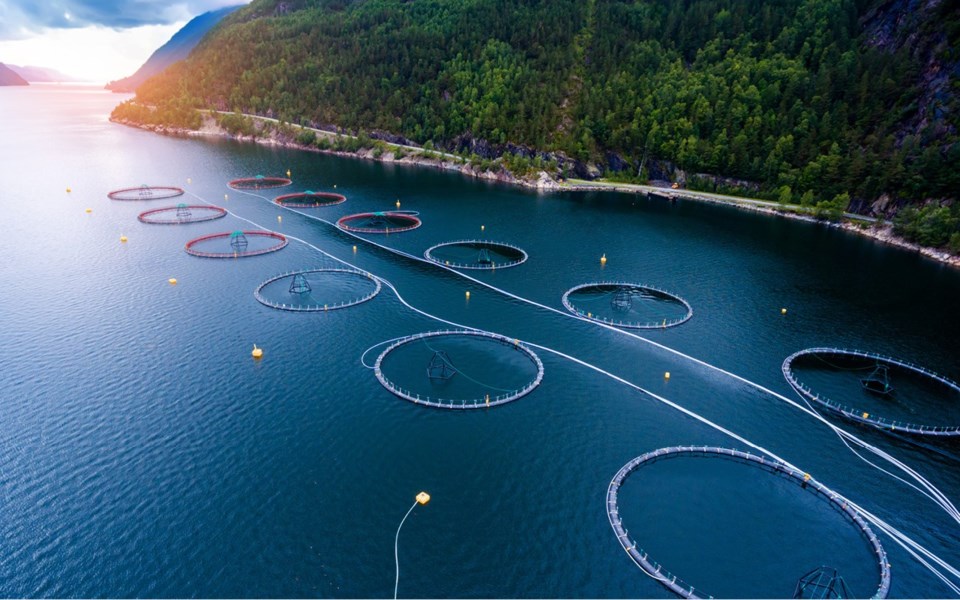In February 2016, the executive director of Clayoquot Action led a "Wild Salmon Delegation" to Norway, to reconnoiter where Canada's West Coast Atlantic salmon-farming industry might be headed. It opened eyes.
With the Norwegian mothership in a tailspin from disease outbreak, sea-lice infestation and escapes—all impacting native stocks of the same species—Dan Lewis spent a couple of weeks observing, fact-finding, and exchanging information. Upon return, he penned an op-ed for Victoria's Times Colonist (an unfortunate name to have to write) about his findings. Stark as these were concerning the state of this older cousin to B.C.'s own marine debacle (Norway kicked off salmon farming in the 1970s and exported it to B.C. a decade later), they nevertheless led to a concise conclusion. Whether offered by journalists, academics, wild-salmon advocates or operations managers, the answer to How can Canada avoid the problems faced by Norway? was universal: the only way forward was a shift to land-based, closed-containment production. And now, from Wisconsin last week, comes a large-scale example of how that might work: Superior Fresh, a company farming Atlantic salmon and steelhead trout in an integrated system that also produces hydroponic vegetables, just sold its first fish in stores.
The essence of this technology is a recirculating aquaculture system (RAS) that re-uses 99.9 per cent of its water. Unlike open-pen farming, fish never see pesticides, herbicides, or antibiotics, but still produce waste as well as organic fallout from uneaten food (sidenote: food for these top predators remains a problem, as it is usually fishmeal, removed from the ocean with by-catch issues). But this is where the tech comes into play: the RAS passes through a three-acre hydroponic greenhouse where nitrifying bacteria break down excess nutrients into a form utilized by the leafy greens growing there; clean water is recirculated back to the fish containment area with virtually zero waste; the remainder irrigates alfalfa for hay production. It sounds too efficient to be true, and yet there's more: every ton of feed produces almost a ton of Atlantic salmon (close to a 1:1 conversion ration; open-pen systems feature ratios of 1.15:1-1.35:1)—plus almost 10 tons of certified USDA organic salad greens. Another benefit: producers can harvest fish every week of the year, making the freshest possible product available to consumers.
OK, you say, what about time frame? Superior Fresh went from conceptualizing in 2015, to construction in 2016, to harvest in 2018—a timespan shorter than the length of an open-pen salmon farm license in B.C. (four years). This transition can happen in a hurry.
No one knows this better than Whistler's own federal MP, Pam Goldsmith-Jones, for whom it has become a cause célèbre. During the recent relicensing discussion in B.C. (where the NDP government merely kicked the can down the road by making it more difficult to qualify for renewal—in 2022), Goldsmith-Jones came out strongly in favour of transitioning the province's open-net salmon industry to closed containment (a B.C. example is owned by the 'Namgis First Nation: visit kuterra.com for info), summarizing causes and benefits in five critical areas of concern in a Vancouver Sun op-ed.
• Business: an increasingly unpredictable environment globally means the biological and economic costs of controlling sea lice, viruses and escapes are rising, licenses are more difficult to obtain, public support is nose-diving, and global capital is diverting to closed containment—an opportunity Canada can't afford to pass up.
• Environment: mounting evidence that sea lice and virus transfers threaten wild salmon is reflected in Norway's moratorium on open-net farms; last summer's pen collapse in Washington state led to an outright ban after all licenses expire in 2025.
• Science: a multi-year, multi-agency study revealed that the piscine reovirus found in farmed Atlantic salmon also causes disease in B.C. wild Chinook, the kind of risk to already depleted Pacific salmon stocks that critics have long cited.
• Indigenous: most coastal communities oppose open-net farms in their territories, pitting them against governments, yet the innovation and investment required to transition to closed containment could be an environmentally friendly nation-to-nation business collaboration.
• Trade: Canada's (questionable to me) trusted leadership "in high-value, safe, secure, sustainable food" offers potential to develop a new high-tech agri-food sector.
As Dan Lewis suggested, global salmon-farming is evolving onto land; and as Goldsmith-Jones avers, Canada should adapt, post haste. For consumers who agree, given the disease, lice and unsolved feed issues of the unsustainable open-pen industry, refusing to buy or consume farmed salmon is the starting point.
Leslie Anthony is a biologist, writer and author of several popular books on environmental science.




